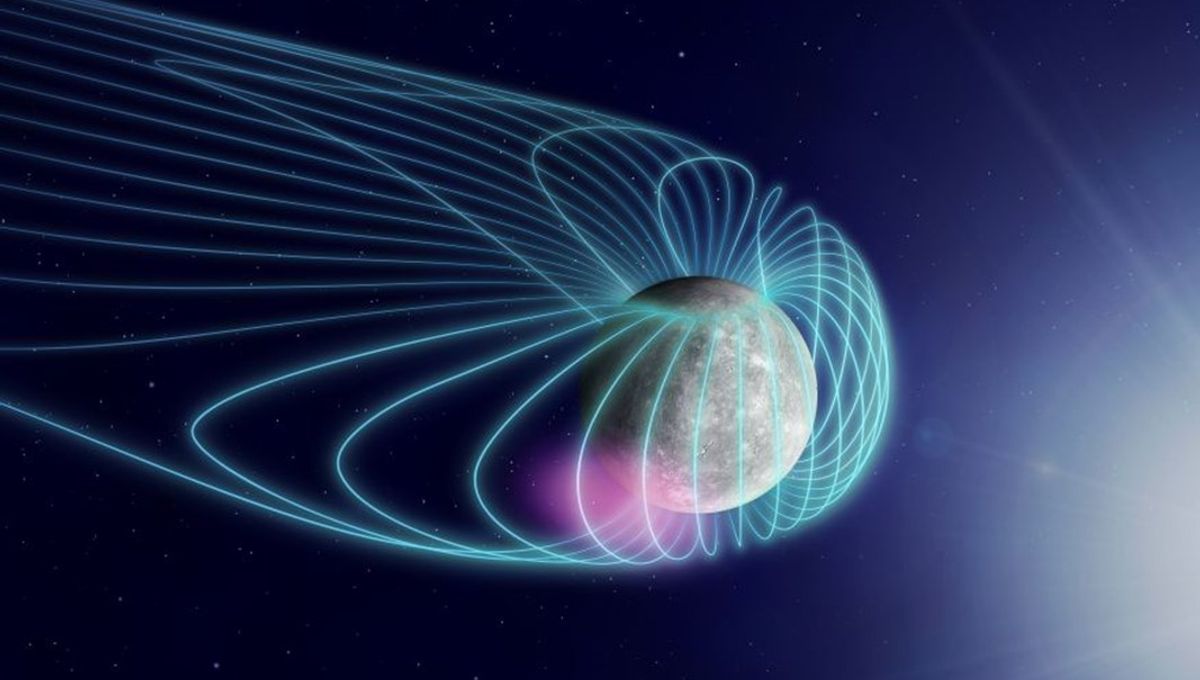
Plasma waves that chirp and whistle like the dawn chorus have been found around the innermost planet. The discovery provides insights into the weak magnetic field of Mercury and gives us a preview of what the BepiColombo spacecraft will be able to study once it is in orbit around the planet. These observations come from a flyby of Mercury by the European and Japanese mission.
These chorus waves have been detected around Earth, Jupiter, Saturn, Uranus, and Neptune – and there are recordings of them from the first three planets in this list. Our planet and the gas giants have in common strong magnetic fields and radiation belts where charged particles get trapped.
Electrons released from the Sun travel through interplanetary space as the solar wind. Encountering a magnetic field, they might spiral around its field lines and this movement creates waves in the plasma. The motion of these waves affects the so-called space weather, and they can be easily turned into sounds that we can hear.
It was thought that Mercury might have them as well. The presence of a weak magnetic field has been known since the 1970s thanks to NASA’s Mariner 10. The MESSENGER spacecraft in the early 2000s showed that the magnetic field center is not at the center of the planet but about 20 percent of the planet’s radius northward. And a previous flyby conducted by BepiColombo showed the presence of weird aurorae on the planet.
The presence of chorus waves was strongly suspected and the researchers believe that the waves are actually connected to the aurorae, in a complex interaction between the magnetic field of the planet and the solar wind escaping the Sun.
“The data demonstrate the existence of energetic electrons on Mercury that can generate chorus waves, the possibility of generating active electrons efficiently accelerated by chorus waves, and the generation of X-ray auroras by electrons forcibly precipitating from Mercury’s magnetosphere to the surface of Mercury driven by chorus waves,” reads a press release about the research from Kanazawa University.
More information about the complex magnetic environment of Mercury will come when the mission enters orbit around the planet in December 2025. Understanding the space weather of such a planet will provide a better understanding of what planets with weaker magnetic fields are like both near and far.
“The present study paves the way for these challenging future investigations that will reveal how magnetized planet environments are shaped by the solar wind in our Solar System, with potential extrapolation to exoplanets and their interactions with stellar winds,” the researchers wrote.
The study is published in Nature Astronomy.
Source Link: Magnetic “Whistling” Chorus Detected Around Mercury For The First Time